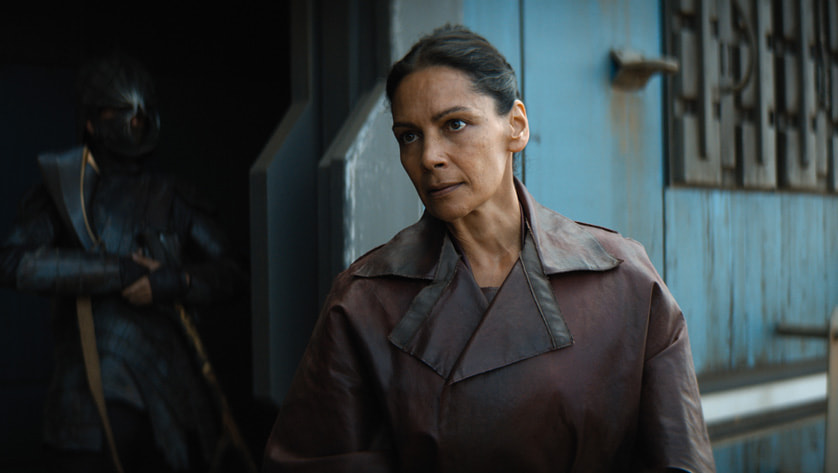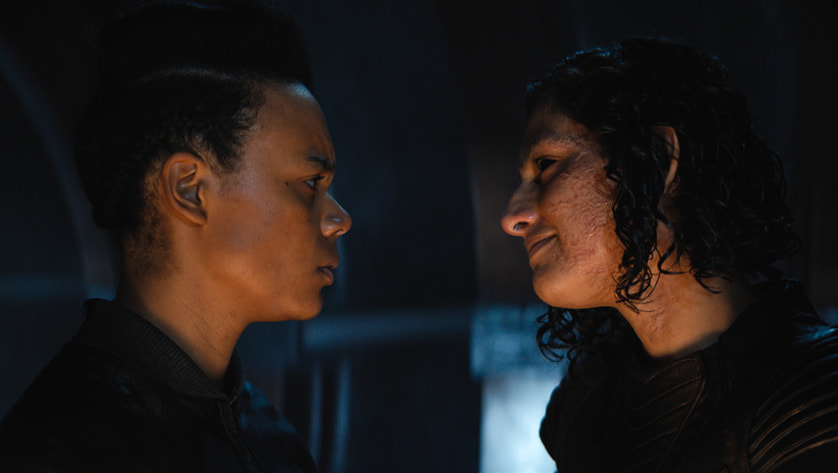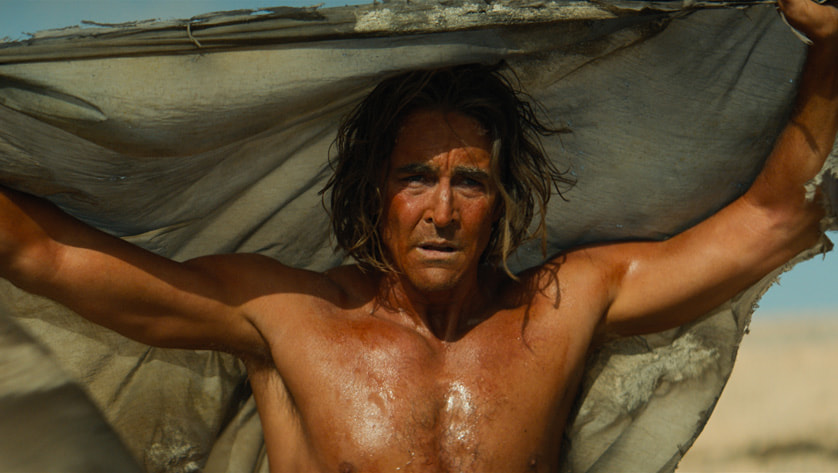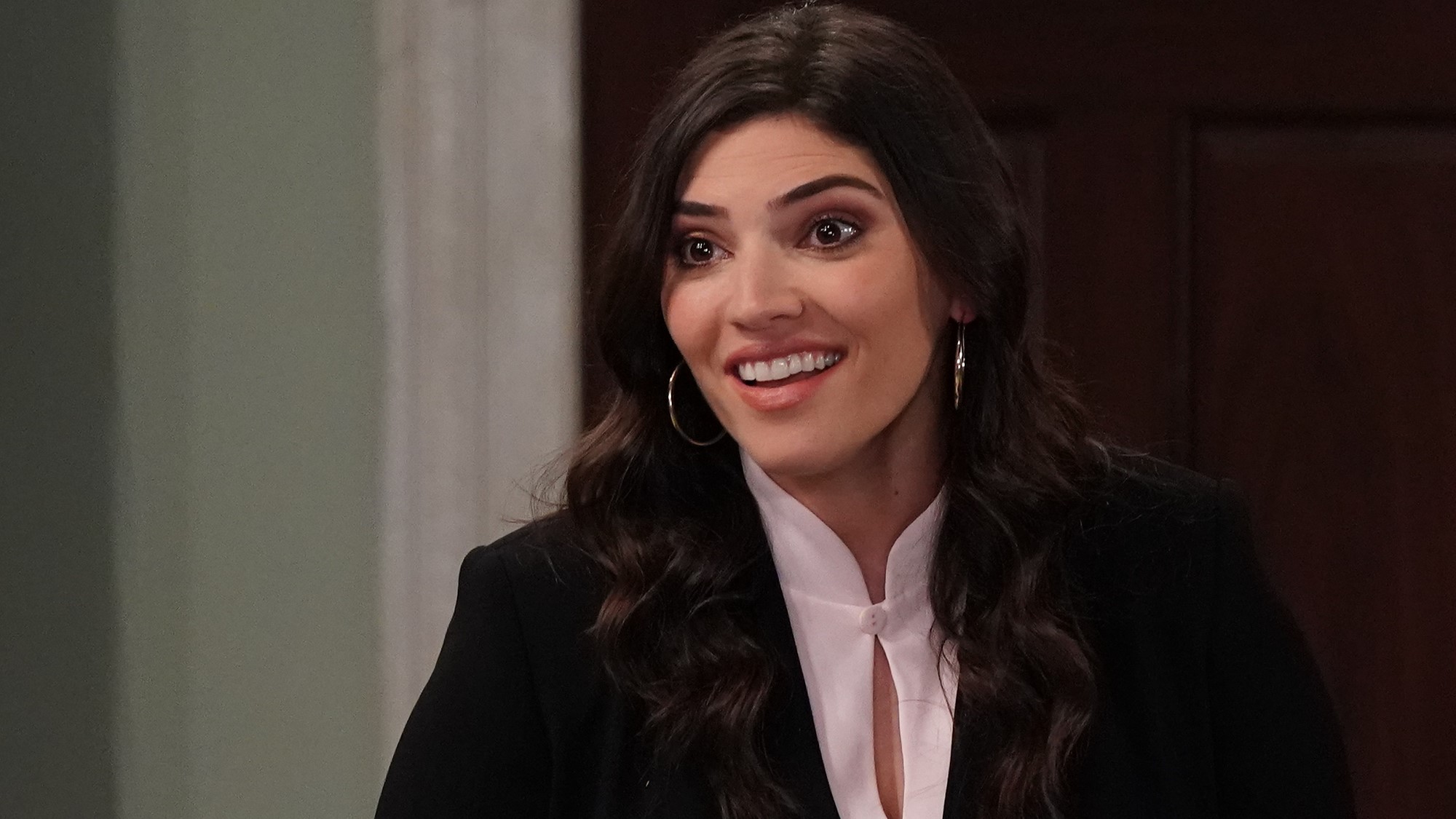What to Watch Verdict
'Foundation' continues to raise intriguing questions, and even if the answers seem far-off, the show's suspense is effective.
Pros
- +
The storyline revolving around Brother Day continues to become sadder and more tragic
- +
Leah Harvey's performance as Salvor Hardin is solid and centering
- +
The fight between Terminus and Anacreon hits boiling point
Cons
- -
It's still hard to tell what the endgame with this show is, even within its first season
- -
The mystery sometimes feels too maddeningly vague
- -
The imbalance of Gaal Dornick as a narrator and as a character continues to frustrate
What exactly is going on in Foundation? There are a lot more specific questions that could be asked, such as what’s inside the mysterious Vault on Terminus or how do the storylines of our narrator Gaal Dornick or Brothers Dawn, Day and Dusk connect to those of the Warden of Terminus? But the core question is simpler and more encompassing: what is going on in this show?
I’ve noted before in these reviews that I am not a reader of the Isaac Asimov book series that inspired this Apple TV Plus sci-fi show, but it’s been interesting to see how many people say that even though they have read the books they are just as clueless about what’s going on here.
On one hand, it’s admirable that Foundation and its creators don’t feel so wedded to the Asimov source material that they have to follow everything to the letter. On the other, that general sense of being unmoored from the events of this show leads to a larger concern, which is that it’s hard to know if the writers of this show have a firm enough grip on the story. Even this season’s penultimate episode, “The First Crisis,” isn’t completely able to walk the line between delivering compelling climactic sequences with character arcs that seem truly logical.
“The First Crisis” has just two areas of focus. In the first, we follow Salvor Hardin (Leah Harvey) as she moves from the recently jumped Imperial ship Invictus back to her home planet of Terminus and in the second, we follow Brother Dawn (Cassian Bilton) as he attempts to pursue his romance with Azura (Amy Tyger) by escaping the palace. In both situations, it’s perhaps accurate to say that our leading characters’ expectations aren’t matched by the reality of what they find, but there seems to be little thematic similarity between these journeys. Both are momentous (and the episode ends with another impressive and baffling cliffhanger), but the same feeling from other episodes — that this show is essentially telling completely different anthological short stories spread out over multiple installments — is hard to shake.
Let’s talk about Brother Dawn’s adventures outside of the palace first. His desire to be with Azura seems to be lining up pretty perfectly. She’s walked him through her daily commute, through the path that he’ll need to take to leave the palace and even how he’ll be able to walk through the world outside the palace without being detected thanks to the nanobots in his blood. But when Brother Dusk (Terrence Mann) approaches him, Brother Dawn becomes suspicious. Specifically, Brother Dusk reveals that he has painted the exploits of Brother Dawn’s first big hunt in the palace into the massive mural he’s tended to. In doing so, he makes clear to Brother Dawn that he understands the younger Cleon clone hunted far more successfully than he'd let on. In short, Dusk makes clear to Dawn that he knows the younger clone is keeping secrets.

So Brother Dawn decides to move up his own departure date by a day (without telling Azura). Though there’s some initial tension, he escapes fairly quickly and makes it out of the palace seemingly undetected. Azura is pleasantly surprised by the arrival of her new beau, except it becomes clear that he’s less beau to her than bait. Yes, Brother Dawn’s departure was made so smooth not because things lined up perfectly, but because Azura and others on the outside were working on purpose to lure him out so that his nanobots could be transferred into another clone of Cleon, who would then be re-installed at the palace in the hopes of overthrowing the three Brothers for good.
Dawn is heartbroken enough to realize Azura used him. The other Dawn reveals that his genetic imperfections are unique because they were manipulated into him at birth and that the new clone would be a true double agent able to genetically fool Brothers Day (Lee Pace) and Dusk.
Ah, but there’s one more twist here: Dusk and his agents have been tailing Dawn the whole time, and just before the color-blind Dawn is about to be killed and the new clone installed in his place, they arrive and dispatch the new clone, Azura and the others. Dusk all but says that Dawn is done for and that neither he nor Day would ever want to deal with Dawn’s imperfections. But it is technically up to Day to decide and he’s about to return from his trip in the Spiral. (Pace only shows up very shortly here, without any dialogue, looking very ... uh ... let’s say displeased.)
The main part of the episode focuses on Salvor, who we first see as a child learning about the history of humanity from her father (Clarke Peters). Her dad tells her that there are conflicting explanations as to the origin of humanity — “Some say they even came from a planet called Earth”, he says (without looking at the screen and winking) — and that past behaviors typically predict future ones unless people can break their own cycle.
It’s wise advice for the adult Salvor, who wakes up as the Invictus completes its jump. She’s pleasantly surprised to learn that the Invictus has jumped to Terminus itself, a jump enabled by the now-dead Lewis (Elliott Cowan). Salvor ends up making a brief jump herself, returning to the ship that she and the others had used to leave Terminus, to begin with. If that wasn’t convenient enough, she’s then greeted by a piece of space debris that isn’t debris at all: it’s her lover Hugo (Daniel MacPherson), who brought along a group of Thespin soldiers to turn off the jump system on the Invictus. While Salvor heads down to the surface of Terminus to see why it is that no one is responding to her many calls for help on the ship, Hugo and the Thespins go to the Invictus and are able to capture all but one of the Anacreon warriors. You may not be surprised to learn that the one Anacreon warrior who they don’t capture is Phara (Kubbra Sait), the vindictive Grand Huntress, who has commandeered a Thespin ship on her own.

When Salvor arrives on Terminus, she’s horrified to find seemingly dead bodies of both her fellow people and the other Anacreons. But Salvor is unwilling to let things go that quickly — she sees the mysterious floating Vault and confronts it. As she does, she recognizes a few more of the Terminus near the Vault, including her mother. And it’s here that we once more revisit an inexplicable power of Salvor’s, as she goes into a trance state and is able to envision herself in the shoes of Gaal Dornick (Lou Llobell) in the premiere episode. That means we see her briefly talking to Hari Seldon (Jared Harris) about how she solved the impossible math problem, and with the strange cubed device that, in Salvor’s hands, is able to unlock the Vault.
With that, Salvor unlocks the Vault and in so doing, unlocks the lives of the Anacreons and her fellow Terminus people and wakes them back up. Good timing too, as Hugo and the Thespins land on the surface with the captured Anacreons roughly a couple of minutes before Phara herself arrives in an attempt to destroy the people of Terminus for good. Salvor pleads her case — specifically, she thinks that the Anacreons, Thespins and Terminusites (Termians? Let’s workshop that one, writers) should band together instead of fight amongst each other. Everyone except Phara seems fine with this, but she’s got plenty of big guns and decides to fire at the Vault when even her fellow Anacreons tell her to lay down her arms. It’s of no use though. When Salvor realizes that Phara is blind to reason, she whips out her bow and arrow and shoots Phara straight in the throat.
If that wasn’t an action-packed enough finale, there’s one more twist: the opened Vault reveals that there is something else inside. Well, more like someone: it’s none other than Hari Seldon, looking serene and pleased to see everyone. “We might just pull this thing off,” he says like the cat who got the cream.
And it is here that I once more ask: ... what thing? It’s arguably quite telling that Gaal, who we don’t see aside from the brief flashback via Salvor, mentions in her narration that history is the most powerful weapon of all and that this is her history, meaning she can add and subtract whoever and whatever she wants.
But again. What is going on in Foundation? There’s just one episode left this season, and even the promise of a second season is muddy because it’s still very unclear what is going on here. This show remains one of the most visually impressive things on television. It’s a high-budget show that shows off that budget each week. A fine cast, too. But the story continues to be a strange, untamable beast. It’s hard to imagine the finale bringing that much clarity to things. But maybe, just maybe, there’s a trick up the show’s sleeve.
More Foundation season 1
- Foundation season 1 premiere recap: episodes 1 and 2
- Foundation season 1 episode 3 recap: The Mathematician's Ghost
- Foundation season 1 episode 4 recap: Barbarians at the Gates
- Foundation season 1 episode 5 recap: Upon Awakening
- Foundation season 1 episode 6 recap: Death and the Maiden
- Foundation season 1 episode 7 recap: Mysteries and Martyrs
- Foundation season 1 episode 8 recap: The Missing Piece
- Foundation season 1 episode 10 recap: The Leap
Josh Spiegel is a freelance cultural critic who has been published in Slashfilm, SyFy, ScreenCrush, The A.V. Club, The Hollywood Reporter, The Washington Post and others. His favorite films include Singin’ in the Rain, The Rocketeer, Pinocchio and A Matter of Life and Death. His favorite TV shows include Ted Lasso, Only Murders in the Building, Deadwood and Lost. He lives in Phoenix with his wife, two sons and too many cats.












